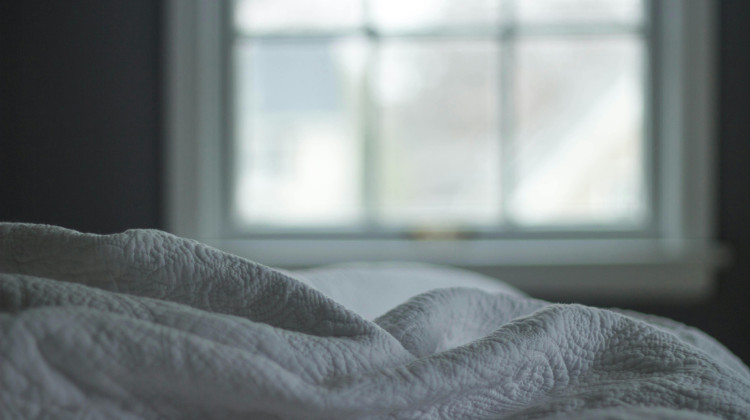
Most adolescent overdose deaths happen in the home, often when family and friends are present.
Kristin Vogt / PexelsYou may have heard the news that the number of overdose deaths in the U.S. has dropped, according to provisional data from the U.S. Centers for Disease Control and Prevention, but the problem isn't going away.
More than 100,000 people in the U.S. In fact, teenagers are still dying of overdoses. Here's the most striking finding of this data — the majority of these adolescent overdose deaths are happening in the home.
The Checkup’s question for today is: What do parents and young people need to know to prevent an overdose death?
Lizzy McGrevy, Side Effects Public Media’s community engagement specialist, spoke with Managing Editor Farah Yousry about that.
This transcript has been edited for length, style and clarity.
Lizzy McGrevy: Can you tell us what we know about young people and overdoses?
Farah Yousry: Like you mentioned earlier, Lizzy, the number of young people who died of an overdose has more than doubled in 2022 compared to 2019, and that's looking at adolescents between 10 years old and 19 years old.
McGrevy: Wow, Farah, that's so young.
Yousry: Yeah. And as parents, we are typically most worried when our teenage children are out partying or doing some other teenage activities with friends away from us. But what the CDC data tells us is that, actually, most of these overdose deaths are happening right under our noses — at home.
“A quarter of deaths among adolescents had evidence of counterfeit pill use and counterfeit pills are kind of easily marketed towards adolescents via social media. And I think they're easier for initiating drug use. And these counterfeit pills, they might look like legitimate pharmaceutical medications, but often they contain fentanyl,” said Lauren Tanz, a senior scientist at the Division of Overdose Prevention at the CDC. “Most of the deaths occur at home where the deceased lives and about two thirds had somebody nearby that could have potentially intervened to prevent the overdose.”
McGrevy: We know that we have tools to reverse overdoses, and that can save lives. Why aren't we employing these tools?
Yousry: According to the data, family or friends in the house may be spatially separated from the teenager — as in, parents may be in the living room and the child is in their own room. So, they do not see what's happening. Other times, maybe they didn't even know that their adolescent uses drugs. And so, they didn't know that they should administer Naloxone.
Other times people just didn't have the tools like Naloxone at home, or they just didn't know how to use it.
Tanz also said that in nearly a third of the adolescent overdose deaths, Naloxone was actually used, but it didn't save the person. She says in these instances, maybe the Naloxone dose used wasn't enough, or in some instances, there may have been “poly drugs” involved.
“Poly drugs mean that there were more than one drug or drug type involved in an overdose,” Tanz said. “So, something like an opioid and a stimulant. Naloxone can only reverse an opioid overdose. That said, over 90 percent of adolescent overdose deaths involved an opioid, so it is always important to administer Naloxone if somebody is overdosing.”
McGrevy: So, what should families know or do to prevent a tragedy like this from happening?
Yousry: First off, stocking up on Naloxone is a great idea. Then, learning how to use it is crucial. There are many educational videos on the CDC website, if you just look up the word “Naloxone” on their website.

Tanz said what really prevents kids from starting to use drugs is building a strong social network around them. So, if for example, they are close to their family, they have activities that they do at school — all of this involvement helps children and prevents substance use.
Finally, if the parent knows that their child uses drugs, it's important to, first, make sure they are doing it safely and, second, to seek effective treatment as soon as possible.
McGrevy: Say there's a parent or caregiver who is concerned that their child might be using drugs, are there certain signs or symptoms to look out for that could indicate drug use?
Yousry: A change in behavior or mood, disappearing for a long period of time, locked doors, being secretive, inability to focus, among other things are signs to look out for.
Experts also say a history of mental illness is another risk factor for drug use.
So, as a parent, if you have doubts, expert advise is that you shouldn't be afraid to err on the side of caution. Be prepared to ask tough questions like, “Have you been vaping, or using drugs?”
Parents should be prepared to respond in a way that does not alienate the child, if in fact they are using drugs, and to be prepared to help them.
McGrevy: Farah, thank you so much for this very important information and shedding some light on this with us today. If you [listeners] have any other questions about opioid use or substance use or mental health or anything else health-related, please let us know and we can try to answer that next time on The Checkup. Stay safe.
If you or someone you know is in crisis, please call, text or chat with the Suicide and Crisis Lifeline at 988, or contact the Crisis Text Line by texting TALK to 741741.
The Checkup by Side Effects Public Media is a regular audio segment on WFYI's daily podcast, WFYI News Now.
Side Effects Public Media is a health reporting collaboration based at WFYI in Indianapolis. We partner with NPR stations across the Midwest and surrounding areas — including KBIA and KCUR in Missouri, Iowa Public Radio, Ideastream in Ohio and WFPL in Kentucky.
 DONATE
DONATE






 Support WFYI. We can't do it without you.
Support WFYI. We can't do it without you.